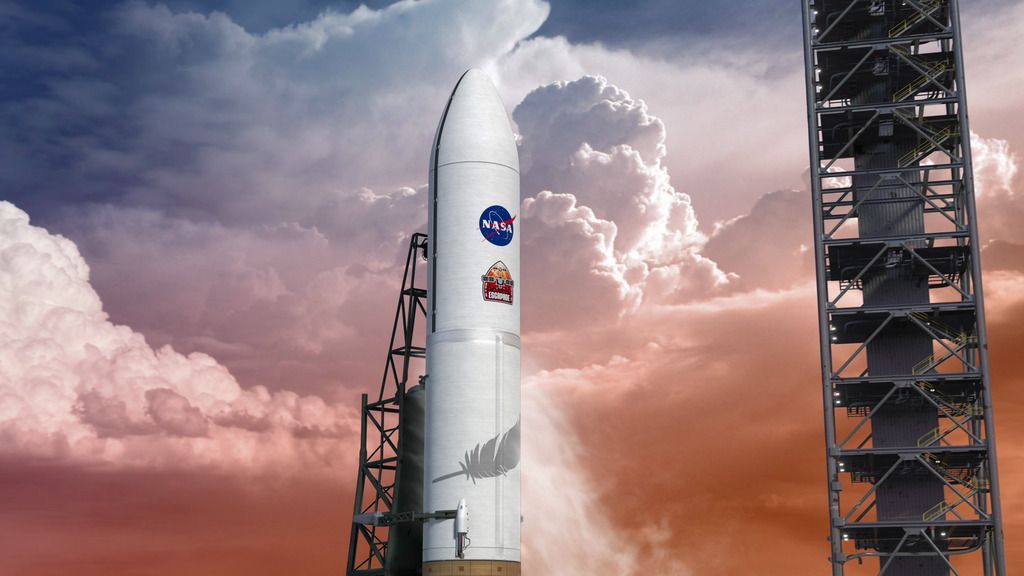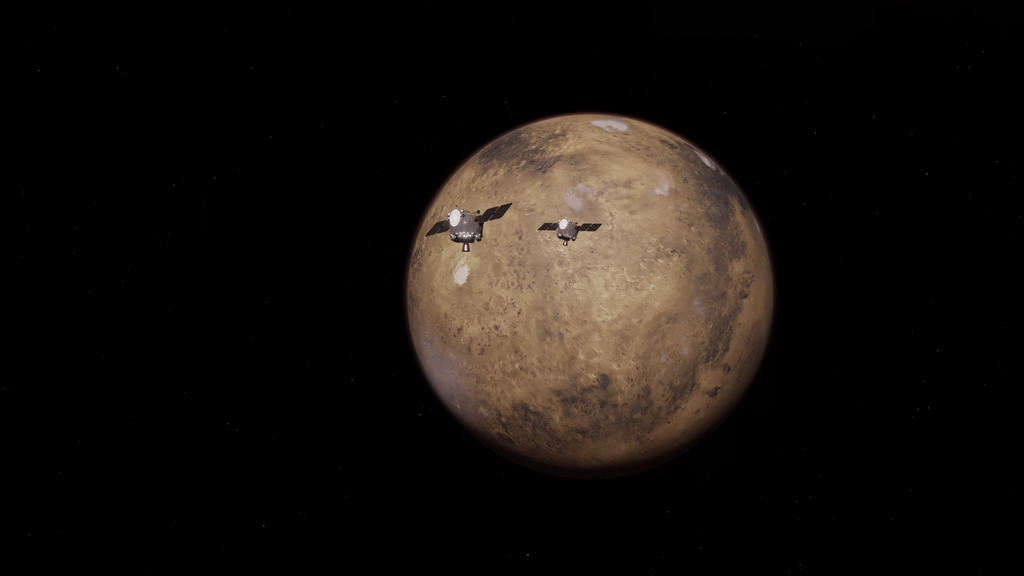ESCAPADE Testing and Integration
The Escape and Plasma Acceleration and Dynamics Explorers, or ESCAPADE, will use two identical spacecraft to investigate how the solar wind interacts with Mars’ magnetic environment and how this interaction drives the planet’s atmospheric escape.
The spacecraft were designed, built, integrated, and tested by Rocket Lab at their Spacecraft Production Complex and Headquarters in Long Beach, California. Based on Rocket Lab’s Explorer spacecraft, a configurable, high delta-V interplanetary platform, the duo features Rocket Lab-built components and subsystems, including solar panels, star trackers, propellant tanks, reaction wheels, reaction control systems, radios, and more.
The ESCAPADE mission is managed by the Space Sciences Laboratory at the University of California, Berkeley, with key partners Rocket Lab, NASA's Goddard Space Flight Center, Embry-Riddle Aeronautical University, Advanced Space LLC, and Blue Origin.
The fully integrated ESCAPADE satellites sit inside of the clean room at Rocket Lab’s Space Systems Production Complex and Headquarters in Long Beach, California.
Footage Credit: Rocket Lab USA
ESCAPADE spacecraft undergoing post-environmental test checks inside of the clean room at Rocket Lab’s Space Systems Production Complex and Headquarters in Long Beach, California.
Footage Credit: Rocket Lab USA
ESCAPADE spacecraft undergoing post-environmental test checks inside of the clean room at Rocket Lab’s Space Systems Production Complex and Headquarters in Long Beach, California.
Footage Credit: Rocket Lab USA
A close-up view of the ESCAPADE spacecraft science instruments provided by the Space Sciences Laboratory at the University of California, Berkeley.
Footage Credit: Rocket Lab USA
Rocket Lab engineers and technicians complete the stacking of the ESCAPADE spacecraft top deck inside of the clean room at Rocket Lab’s Space Systems Production Complex and Headquarters in Long Beach, California.
Footage Credit: Rocket Lab USA
Rocket Lab engineers and technicians completing the stacking of the ESCAPADE spacecraft top deck inside of the clean room at Rocket Lab’s Space Systems Production Complex and Headquarters in Long Beach, California.
Footage Credit: Rocket Lab USA
A fully integrated ESCAPADE satellite sits inside of the clean room at Rocket Lab’s Space Systems Production Complex and Headquarters in Long Beach, California.
Footage Credit: Rocket Lab USA
Rocket Lab engineers and technicians work on one of the ESCAPADE spacecraft inside of the clean room at Rocket Lab’s Space Systems Production Complex and Headquarters in Long Beach, California.
Footage Credit: Rocket Lab USA

Image of the fully integrated ESCAPADE spacecraft in the clean room at Rocket Lab’s Space Systems Production Complex and Headquarters in Long Beach, California, before they are shipped to Astrotech Space Operations for pre-launch preparations.
Photo Credit: Rocket Lab USA

Image of the fully integrated ESCAPADE spacecraft in the clean room at Rocket Lab’s Space Systems Production Complex and Headquarters in Long Beach, California, before they are shipped to Astrotech Space Operations for pre-launch preparations.
Photo Credit: Rocket Lab USA

Image of the fully integrated ESCAPADE spacecraft in the clean room at Rocket Lab’s Space Systems Production Complex and Headquarters in Long Beach, California, before they are shipped to Astrotech Space Operations for pre-launch preparations.
Photo Credit: Rocket Lab USA
For More Information
Credits
Please give credit for this item to:
NASA's Goddard Space Flight Center
-
Producer
- Beth Anthony (eMITS)
Release date
This page was originally published on Tuesday, September 3, 2024.
This page was last updated on Wednesday, September 11, 2024 at 3:40 PM EDT.


![Music Credit: "Inviolable" by Bob E. Thole [BUMA] via Universal Production MusicAnimation Credits: James Rattray/Rocket Lab USA; Blue Origin](/vis/a010000/a014600/a014664/ESCAPADE_Trailer_thumb.png)




